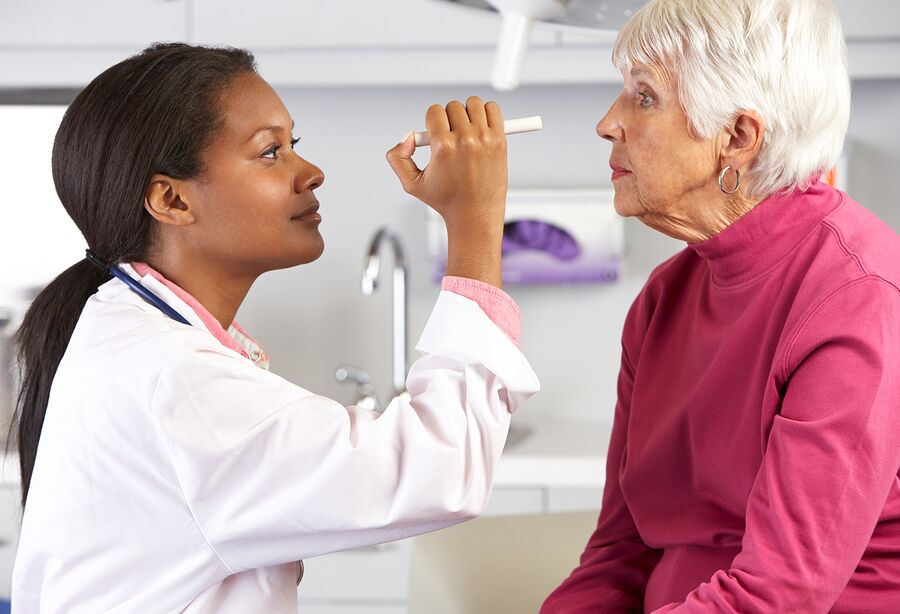February 19, 2019

Causes of Low Vision
Besides age-related reduced vision, there are many eye diseases and chronic health conditions that can trigger low vision in the elderly. Among the most common are glaucoma, cataracts, macular degeneration and diabetic retinopathy. Complications from other chronic health issues can also affect vision, such as diabetes, stroke, retinal detachment from a head injury and chronic eye infections. Depending on the severity of the condition, many aging adults depend on family caregivers and hired home care providers to assist them with tasks they can no longer do thanks to low vision.
Effects of Low Vision on Quality of Life
With low vision, an elderly adult’s whole life can shift. Imaging not being able to read prescription bottles or books, or see well enough to cook, clean or get dressed. Poor vision can also seriously affect an elderly person’s ability to drive, do hobbies, recognize facial expressions, socialize and attend community events. In many cases, losing vision can trigger episodes of anxiety and depression as seniors realize how much their lives are changing. Even though home care providers and family members can step in and help, many seniors want to live as independently as possible. That’s where low vision devices can come in handy.
Types of Low Vision Devices
There are many low vision devices designed to help elderly adults compensate for vision impairment and loss. The most common are those devices designed to enhance communication skills like writing, reading, using a phone, watching television and using a tablet or computer. There are many adaptations for these devices that can help low vision seniors operate them successfully, from enlarged fonts and keyboards to voice-activated remotes.
From handheld or glasses magnifiers to high-powered video magnifiers, seniors with low vision can also do better with tasks like self-care, hobbies, managing finances, and cooking. The magnification and high-quality optics can often make a real difference for seniors battling low vision. Eye doctors and related senior organizations can provide more information as well as coping strategies for seniors who are experiencing low vision and want assistive devices to help them live more independently.
Even if aging adults can take care of several daily tasks on their own using low vision devices, they will feel more independent and confident about their current situation. Family caregivers and home care providers should encourage seniors to use low vision devices as often as possible so they can take an active role in their new circumstances, despite poor vision.
If you or an aging loved-one are considering hiring Elderly Care in Greentree, PA, please contact the caring staff at In-Home Quality Care today.
Serving the Greater Pittsburgh Area since 1990! Call 412-421-5202